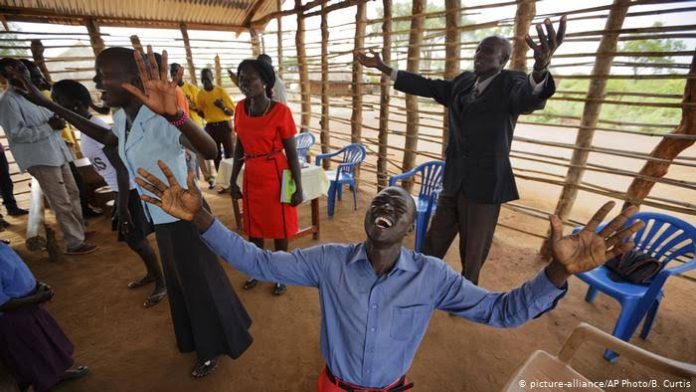1) The ugly impression in Africa, especially in Nigeria (Igboland), that Christianity is against everything traditional is not only false but misleading. This false impression was propagated during the missionary era, particularly by missionaries in Africa. This erroneous teaching that found its way into our local catechism books was officially discarded by the Catholic Church some 55 years ago. However, before the intervention of the Church, one priest called Fr Paul Francis Libermann (1802– 1852), the co-founder of the Holy Ghost Fathers Congregation was convinced that the complete negative label on African Traditional Religion was unwarranted. Thus, while sending his missionaries to Africa, he implored them:
2) “Do not in any way ask these peoples to change their usages, their rites and their
manners; at least as long as they are not in all evidence contrary to religion and
honesty. What would be more absurd as to transfer to China (in its entirety) either France, Spain, Italy or whatever part of Europe. It is not this that you have to bring to them but the faith. This faith does not reject nor derogate the customs but on the contrary
conserves and protects them … . Never compare the practices of this people
with Europe. On the contrary, with lots of diligence accustom yourselves to their
manners. Admire and praise all that merits it. Nothing provokes more hatred and
aversion than to bulldoze the practices of a people, above all when these are
immemorial usages received from the ancestors and more still, when one
bulldozes the customs of a people to replace them with those of one’s proper
country.” (Sacred Congregation of Propaganda Fide, Memoriam Rerum, III/II, 702).
3) When it occurred to Libermann that his instructions were not kept in African mission. He rebuked his missionaries:
“Haven’t you been too severe, and too hard? Have you not lacked the appropriate manner of dealing with them? Adapt to the habits and customs of all, and never expect other people to adapt to your tastes and traditions. Those who are charged with the salvation of people should know how to adapt their mentality to others without being broken or breaking others.”(Chevilly-Larue, Archives Générales de la Congrégation du Saint-Esprit (C.S.Sp.), Notes et Documents, VII, p.161). Libermann did not live long to supervise this. He died few years later in 1852 at the age of 49. With his death, the mayhem against the African culture went on almost without check. In 1885, his missionaries landed in Onitsha. The rest is now history.
4) However, towards the end of his sojourn in Nigeria one of the missionaries, Bishop Joseph Shanahan CSSp, realised what Libermann was talking about. The mistakes were already made. Shanahan had this confession to make:
“It was once thought a great thing if a missionary overturned an idol, or scattered the votive offerings laid out to propitiate the spirits of the wind or of the water, or the rest. Instead, this was a fatal error.” He continued: “These things represented religion to the native consciousness. They were the black man’s appeal to forces outside of himself, and ultimately to the great spirit who was Lord of all. So, to thrust uncouthly into the midst of this merely misguided religious instinct was equivalent to teaching the African to despise religion. And then, thereafter, to expect him abiding respect for the true religion we submitted for his false observances was too much. We had already taught him irreverence.… And the Christian spirit is essentially a spirit of reverence.” (Cf. Editor, “Bishop Shanahan Talks About …” Mission Outlook (Annals), June 1971, p. 25).
5) Despite this confession, the onslaught against African culture went on unabated. It was only in 1965 that the Second Vatican Council (1962 – 1965) came up with a position on the matter. After a long investigation, the Second Vatican Council in Nostra Aetate (promulgated by Pope Paul VI, 1965) insists that the Catholic Church “rejects nothing that is true and holy” in other religions. It continues, “She (the Church) regards with sincere reverence those ways of conduct and of life, those precepts and teachings which, though differing in many aspects from the ones she holds and sets forth, nonetheless often reflect a ray of that Truth which enlightens all men. Indeed, she proclaims, and ever must proclaim Christ ‘the way, the truth, and the life’ (John 14:6), in whom men may find the fullness of religious life, in whom God has reconciled all things to Himself” (Vatican II, Nostra Aetate, no.2). This is not just the position of the Church but that of common sense. Who in his right senses will fight against noble traditional values that have served a people since time immemorial? Most Christian celebrations we have today, including Christmas, pre-existed Christianity. Rather than abolishing them, they were beautifully incorporated into the Christian faith. The rich African puberty rites, initiation rites, marriage rites, and so on could have solidified the Christian faith in Africa if they had been properly integrated into the Christian faith.
6) My major concern is not the mistakes already made by the foreign missionaries who acted out of ignorance, but that 65 years after the intervention of the Second Vatican Council, indigenous African clergy, who were and are expected to know and understand their own traditions and culure better, have continued to make the same mistakes. Even till date, one sees priests/pastors who still go about demolishing shrines and religious objects. One still finds native preachers using the same mouth they use in eating yam and cocoa yam to abuse the religion of their ancestors and harmless societal norms that have preserved their society for over thirty thousand years. If we must break away from the religion of our ancestors why can we not treat and respect it for what it is: our old/ first/primordial Testament. With the dawn of Christianity, did the Jewish Christians destroy the Jewish religion? Was it not neatly bounded with the New Treatment? The (Catholic) Church asks us to retain all that is “true and holy” in our culture. Is that difficult to understand? Is that not simple common sense?
7) Must we even wait for a council in Europe, with few or no African in attendance, to remind us of the importance of promoting and preserving our culture? Can we not distinguish between good and evil on our own? If we finish destroying our foundations where shall we place our feet? Are we not living witnesses to the penalty we are all paying for the destruction of our culture? As you are reading this piece now, one efulefu is somewhere cutting down trees, destroying shrines and sacred objects in the name of liberation or evangelism. Rather than calling such people to order and questioning their mental state, one still finds people clapping for them. Let us assume that you have completely disentangled yourself from your culture and history, and that you have developed aversion to everything concerning African Religion and culture; do you not know that when you destroy the worship places of others, you also destroy reverence to sacred things? Yes, that it is not sacred to you does not mean that it is not sacred to the adherents.
8) When we destroy shrines because they are against our faith what makes us different from members of Boko Haram that are burning down Christian Churches? Where did Jesus destroy any religious object or ask his followers to do so? Or do you think there were no local shrines during his days? Of course, I cannot prevent anyone from removing or destroying ancestral places of worship but I assure you that you will be ashamed when you go to Europe (or somewhere not far from you) and have to pay to see those objects from your village beautifully displayed in museums. I no longer visit African museums in Europe because each time I do, I weep. Those shrines, objects, observations you call fetish were meant to protect your identity, self-esteem and your history. Before we cut down any tree, let us think about the things it gives shelter to, the air it purifies and the erosion it prevents. Before we destroy a bridge, let us build a better one. As co-creators with God let us learn to create, recreate and work together so as to make the world a better place for all. If we imbibe the spirit of teamwork (of Igbo bu Igbo) we would discover how to build without destroying. Let us learn from God the creator who did not destroy the shapeless and dark world (void) but added light, life and beauty to it. Until we stop destroying ourselves and values, we will continue to be a laughing stock before the entire world.
By Rev Fr Angelo Chidi Unegbu (cangelo123@yahoo.com)








